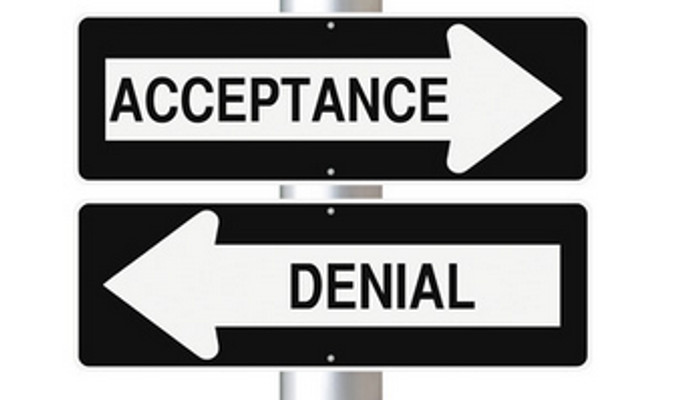
Mary Kay Is Like a Gambling Addiction
 Written by Lazy Gardens
Written by Lazy Gardens
There are four phases to a gambling addiction. It struck me that Mary Kay (or participation in any MLM, for that matter), is an awful lot like a gambling addiction. See if you agree when you read about these four phases.
Winning Phase
Short or non-existent phase with several small or large sales wins, a sense of emotional escape from problems, a boost in self-esteem, and a sense of empowerment. Excitement, titillation, and a social life at the casino with other Mary Kay consultants fill a vacuum in the life of those predisposed by their conditions and considerable loneliness.
Losing/Chasing Phase
Losses are explained away as poor luck, but no win is enough. Individual hides their purchases gambling, as losses puts person behind a financial “eight ball”. Consultant Addict begins to ignore family and become irritable when not gambling. Gambling Mary Kay becomes the sole, but spurious coping mechanism. Participates in Mary Kay Gambles to the edge of insolvency and is unapproachable about the problem. This phase can last multiple years, with progressively larger bets on longer odds. Conversations only involves winners, not losers, which are purged from consciousness.
Begins borrowing to support habit. Family life is going down in uncontrollable spiral.
The Desperation Phase
There is no time for anything else, and nothing else matters. Lying, manipulation, dissembling, and complete deflection of criticism typify this period. Externalization of blame and complete lack of accountability are hallmarks of this phase. Acute anger at others who will not participate in the lie of his or her existence is typical.
Financial affairs are disastrous. Bills are unpaid, and family is knowledgeable, suffering, and powerless. Phones go unanswered.
Rock bottom is generally the only point of possible remedial action. Only after the family forsakes the consultant gambler, they have lost their job, they are being sued, and completely lacking in resources, does an attempt at remediation occur.
The Hopeless Phase
This is a new clinical phase which is a function of the fact that many consultants gamblers actually go beyond the desperation phase. This phase goes well beyond what most people would feel was more than “bad enough”. This phase can involve clinical depression, suicide, or actions that will most assuredly land them in jail. This is make or break time, quite literally.
Which Mary Kay phase are you in?





 Visit the
Visit the
WoW! Truth!
It is a lot like gambling. Gambling addicts have their eyes on the big win despite very long odds, they often have their blind superstitions and bee-lief that they will win big ‘this time’ despite past failures. Also shame in hiding how much time and money they are spending on the addiction and how much they have lost and acting like things are in control ‘fake it til you make it’. Like gambling, usually ‘the house’ is the only winner.
If you actually make money by selling products or fleecing your recruits for inventory, much of it goes back to MK through expenses such as more inventory, ridiculously expensive clothes, conferences, etc.
I totally agree. In addition to unrealistic optimism of beating long odds, they also fail to understand the cost side of a balance sheet. I’ve seen gamblers lose thousands of dollars, but if they win $500, they treat it as “free” money, and blow it on indulgences. “I won! Drinks are on me!”
MLMers treat commission revenue the same way gamblers treat winnings…failing to account for how many dollars of cost that went into each dollar of return commission or bonus. The gambler is the only one to blame for not tracking costs. But in MLM, the up-line encourages the conflation of gross revenue with profit. They also encourage reps to brag about every commission and bonus check, portraying it as net income. Not only that, they encourage them to share with the world every indulgence afforded them by those commission checks/bonuses. Purple card anyone?
This is all very sad for the gambler and for the MLMer.
One of my aunts gambled, but rationally. She went with a certain amount of money set aside for it. If she lost, she lost and she quit. If she won, which she often did because she was a good poker player, she still came home with no money … because she would go shopping with her winnings the day before she left.
The story goes that my grandmother liked to play the horses. As a treat she would go to the track with money in one pocket and the winnings would go in the other pocket. When the first pocket was empty that was it for the day. Winnings were shared in the form of random small treats for her husband and two daughters. My mom would get candy or a comic book, or if the winnings were very good, perhaps a new doll.
I have a new email, but I’m still the same Autumn
Autumn, your grandmother sounds great, and she does not sound like one with an unhealthy relationship to gambling, so long as she was gambling out of her abundance. I am an engineer by education and a systems architect by profession (translation: nerd). I have always looked at “commercial” gambling as a silly endeavor, which is why even from a very young age I was curious about the appeal of Lotto, casino gambling and of course MLM. I always saw horse racing as a sport, not a gambling proposition, as I did not grow up in a state with legalized gambling. We watched the Kentucky Derby on TV to see who would win…no wagers involved.
Nowadays, if I am asked to join others on a casino outing, I do exactly as your grandmother. I set a fixed “entertainment” cost for the outing, and if/when that money is gone, I am done, after which I just hang out and watch my fiends, while trying to keep my cringing to a minimum as they throw good money away.
My favorite gambling quote is in reference to Vegas: “Look around at all of this grandeur. And to think that all of it was paid for by those who ‘broke even’ or ‘won just a little.'”
MLMers, in general, seem to have a similar penchant (consciously or unconsciously) for understating the cost side of their ledger. Statistics say that your grandmother’s “other” pocket ended up with far less than she started with nearly every time. She let the track take their cut before she bestowed what remained on her loved ones. It’s her money, of course, but this mindset boggles my mind. In her shoes, I’d give the money (or gifts) directly to my loved ones, and keep the track out of it.
But if this was just a modest indulgence for her, and her loved ones got to share in any winnings, I guess I can see why this was something nice for her and for her family.
The Younique presenter does something similar, but less healthy. She puts good money into Younique, and when she gets a little back on her purple card, she indulges in something, and posts a picture for all to see on social media. She does not realize that nearly everyone who sees that post knows how much that Starbucks really cost her. This is the same way I see gamblers when they blow their winnings as if those winnings had no associated cost.
But I am a nerd. The only gambling I can enjoy is at someone’s home where we all take turns being “the house”. In this scenario, 100% of the money stays “in the family”.
Sadly, MLM involvement is far worse than casino gambling.